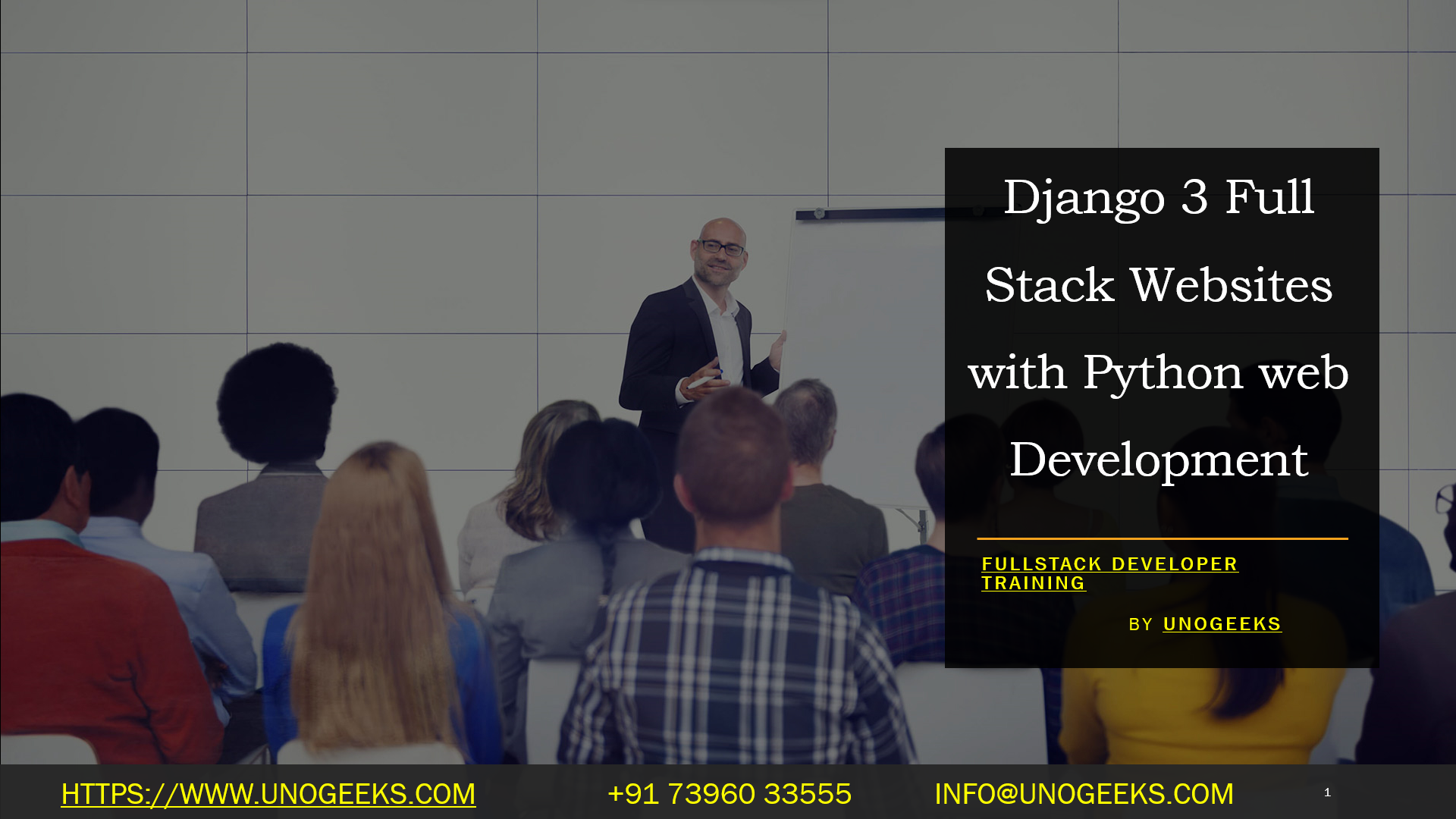Django 3 Full Stack Websites with Python web Development
Django 3 Full Stack Websites with Python web Development
Creating three different Django 3 full-stack websites using Python web development is an ambitious project. Each website can have its own unique purpose and features. Here, I’ll outline three potential Django 3 full-stack website ideas with a brief description for each:
- E-commerce Website:
- Description: Build a comprehensive e-commerce platform where businesses can list and sell their products. Customers can browse products, add them to the cart, and complete the purchase.
- Key Features:
- User registration and authentication.
- Product listings with images, descriptions, and prices.
- Shopping cart and checkout functionality.
- Payment gateway integration.
- Order history and tracking.
- Product reviews and ratings.
- Seller accounts with product management capabilities.
- Admin panel for site management.
- Responsive design for mobile and desktop users.
- Blog and Content Management System (CMS):
- Description: Develop a blogging platform and content management system for bloggers and content creators. Users can create, edit, and publish articles with rich text editing.
- Key Features:
- User authentication and role-based access (admin, editor, author, reader).
- Article creation and editing with a WYSIWYG editor.
- Categorization and tagging of articles.
- Comment system with moderation.
- User profiles with author bios and profile pictures.
- Search functionality.
- RSS feeds and email subscriptions.
- Media and image uploads for articles.
- Analytics and performance monitoring for authors and administrators.
- Task and Project Management Tool:
- Description: Develop a web-based task and project management tool that allows teams to collaborate, assign tasks, set deadlines, and track project progress.
- Key Features:
- User registration and team creation.
- Task creation, assignment, and priority settings.
- Project boards with task cards and columns (e.g., To-Do, In Progress, Done).
- Deadline tracking and notifications.
- Comment threads for task discussions.
- File attachments and document sharing.
- User activity tracking and reporting.
- Kanban-style project management interface.
- User dashboard with task summaries and project overviews.
- Integration with calendars and notification systems.
Full Stack Developer Training Demo Day 1 Video:
Conclusion:
Unogeeks is the No.1 IT Training Institute for Full Stack Developer Training. Anyone Disagree? Please drop in a comment
You can check out our other latest blogs on Full Stack Developer Training here – Full Stack Developer Blogs
Please check out our Best In Class Full Stack Developer Training Details here – Full Stack Developer Training

———————————-
For Training inquiries:
Call/Whatsapp: +91 73960 33555
Mail us at: info@unogeeks.com
Our Website ➜ https://unogeeks.com
Follow us:
Instagram: https://www.instagram.com/unogeeks
Facebook:https://www.facebook.com/UnogeeksSoftwareTrainingInstitute
Twitter: https://twitter.com/unogeeks
